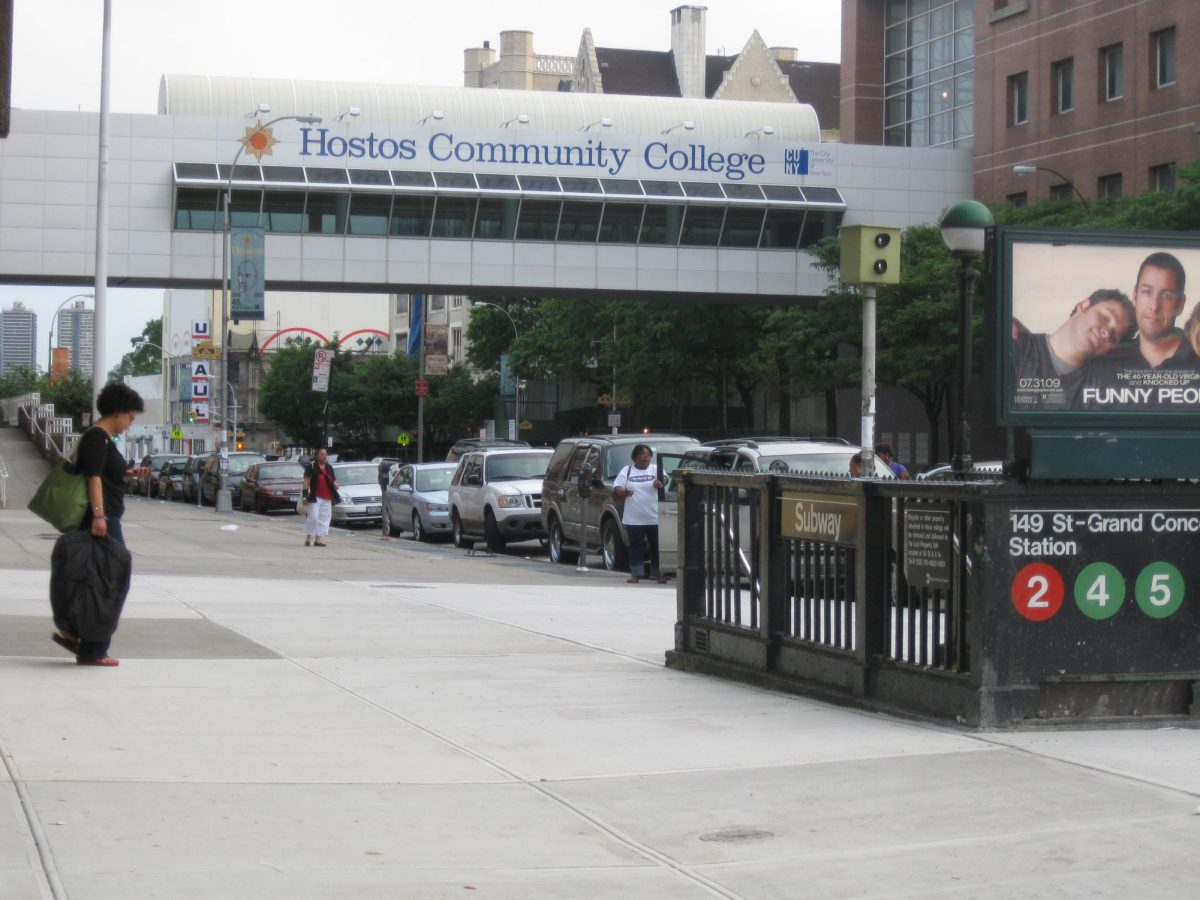For a final project, a group from THE 4102 — a special topics in applied theater class at Baruch College — showcased the struggles that arts majors experience in the college to administrators and students on Dec. 5.
One of the students who participated in the performance was Zeynep Akca, a distributor for The Ticker.
The presentation started with an explanation of what applied theater is; simply put, it is a set of theatrical tools used to educate people for different purposes to solve
problems.
As the audience members were key participants in the performance, everyone was asked to participate in a series of exercises as a warmup.
The showcase finally started, with students running and acting throughout the whole performance. The show was a highlight of struggles that arts students face every semester. The first struggle highlighted was class registration. Baruch, known primarily as a business school, offers plenty of classes for Zicklin School of Business students. Weissman School of Arts and Sciences students, however, do not have that luxury, claimed the
performance.
Courses offered to students in the arts are not available every semester as, for instance, a course in marketing would be. Sometimes, if a student in the arts wants to take a certain course, they have to wait over a year for it to become available at Baruch.
Another issue arts students face is the lack of help when it comes to getting access to these courses. The performance featured slight mocking of the advisement office, and the fact that it only helps with the worksheet for classes, not actually providing any help when it comes to wanting to take a class not being offered that semester. In the showcase, the office simply dismissed and redirected the actor on stage to the school website or to a different office.
The issue of starting a new club on campus was also discussed in the performance.
When a new club is formed, there must be a minimum of 10 members part of it, with at least two members on the club’s executive board. The club is then required to host events throughout the year, without any help from the Office of Student Life when it comes
to funding.
The last issue tackled was job fairs at Baruch. When a Zicklin student goes to a job fair, they have a plethora of opportunities. A student in the arts does not have the same privilege, however. Companies, such as Penguin Random House, attend the Baruch job fair in hopes of finding a marketing major, claimed the performance, not someone interested in journalism or literature.
After the short performance, the actors asked the audience what Mike, the protagonist in the play, could have done better when coming across these issues. They gave the audience time to think, write down their opinions on a flashcard and share their thoughts with the person next to them.
The performance then began a second time. This time however, when Mike would encounter a problem, an audience member could shout “stop” or “freeze” and take the actor’s place, acting out their own particular solution. The first stop happened less than a minute into the second performance, suggesting that the student should go to a particular academic department and speak to those staff members directly about the lack of courses offered.
Not long after, the second stop was called out. The suggestion was for students to go to the administration as a collective group, not separately.
There is a power in numbers, and approaching the situation as a whole group would be more effective than as individuals, claimed the show. Students could sign a petition to show that a certain amount of students want to take a course not being offered in Baruch, prompting the respective department to add the course for the
following semester.
The entire audience was involved with the reenactment and participated willingly. There were questions brought up by audience members that were also answered by different audience members. The main question was the use of an e-permit to take classes at a different school. Many in the audience were not even familiar with what an e-permit was, prompting a discussion and explanation of how it worked.
The third and final reenactment of the show allowed others to give their input again or in different circumstances. This time around, Professor Debra Caplan of the applied theater class yelled “stop,” taking on the role of Mike. Caplan suggested involving the actor playing the business student to help. A suggestion to form a collective group and write an article for The Ticker was brought up.
Mike’s character then went on to speak with an editor of The Ticker, suggesting that students should publish an open letter or make a series in multiple issues of the newspaper to bring awareness to the matter. This would involve both Zicklin and Weissman students working together to achieve a common goal.
At the end, the performers asked the audience for suggestions and ideas to bring up to the Strategic Planning Committee, a group that is deciding the college’s Strategic Plan for the next five years.
The chair of fine and performing arts, Anne Swartz, also attended, giving a short speech stating that the issues and concerns students have do not go unnoticed.
Oftentimes, it is an issue of money and how much of it is available when deciding whether to offer a course.







